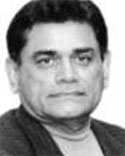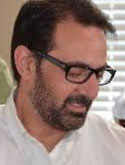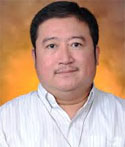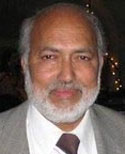By Iftekhar Hai, New Age Islam
28 May, 2015
God/Allah has favoured every person with a conscience. Every person in his/her conscience knows what is right and what is wrong. Muslims believe in the revelations that came before Islam. The Quran says, “To every people was send an Apostle, in their own language, in their own country – to clarify (misunderstandings).” 14:4, 16:36 & 10:47
The Quran also says in a very pluralistic tone in 5:48 that Holy Guidance/Scriptures were also given to people who came before our Prophet was born and before the Quran came into existence.
The Quran also commands Muslims to respect Freedom of Religion and to never coerce believers from other faiths in 2:256.
Hence to be correct, to be fair and to be righteous is not exclusively a Muslim domain. Righteousness is multifaceted with doing good, i.e., believing in ONE GOD, praying, giving money in charity, helping the poor, homeless and the downtrodden, doing work honestly, not taking advantage or robbing the weak etc. etc. However, the Quran not only supports all of the above, but also connects it to JUSTICE. Justice has to be understood in a Global context and across inter-religious lines across all spiritual traditions.
Humanity is work in progress. We have not reached to perfection. But we all are striving towards making the global community more just and fair regardless of caste, creed, religion and ethnicity.
The structures or institutions that dispense justice have undergone changes as knowledge spread across the world. Today,
the structures of justice are the same all over the world, namely, various Courts of Law - where judges, witnesses, jury, defendants, the accusers and law enforcement personnel play vital part in dispensing justice.
The Quran teaches us to examine the character of people in charge of dispensing justice as GUIDANCE to delivering verdict which will be as fair and just as possible.
The Quran says they should be free from hatred, political and national agendas, religious affiliations, etc. These are the only people that Quran recommends for dispensing justice through the Courts of Law and they could be from any religion because the honest and truthful people are found in all religious traditions because all spiritual GUIDANCE for all people has the same source.......namely, Allah/God/Bhagwan, Adonia, etc.
UMAIA scholars are well aware of the following verses in the Quran.......please concentrate of them.
Be just for this is closest to righteousness “Oh you who believe! Be consistent in your devotion to God, bearing witness to the truth in all equity, and never let hatred of others lead you to deviate from justice. Be just for this is closest to righteousness, and remain conscious of God, because God is well Aware of all you do.” 5:8
(An ideal judge must have these characteristics – be honest and not have hatred)
Stand out firmly for Justice “Oh you who believe! Stand out firmly for justice, as witnesses to God, even against yourself, against your parents and against your children, against people who are rich or poor, because God is the best of all Protectors. Do not follow your inclinations or your desires, lest you should deviate from justice. Verily God is well acquainted with all that you do.” 4:135 (Ideal witnesses must have these qualities)
Real Righteousness: “It is not righteousness, that you turn your attention/concentration towards the East or towards the West (supporter of socialism, capitalism, etc.) but it is righteousness, to believe in God, The Last Day, The Angels, The Book (Quran) and the (all) Messengers. It is righteousness, to spend out of your income, for the love of God, for your relatives, for the orphans, for the needy, for the traveller, for those who ask and for the ransom of slaves. To be steadfast in prayers, practice regular charity and to fulfil the contracts that you have made. It is righteousness to be firm and patient in pain, suffering or adversity, and throughout all periods of panic – such are the people of truth, the God conscious (God fearing).” Quran 2:177 (These are the characteristics of ideal jury).
The act of righteousness or surrender (which is Islam) is explained in all the religions through, belief in One God, prayers, charity, fasting and going for pilgrimage to their own designated holy places. However, Quran expands the meaning of righteousness to include Justice - which leads to reconciliation and forgiveness in all the religions.
These Qualities Are Essential For We People To Turn This Sinful World Into Heaven-Like Conditions For All People.
You Will Find That Righteousness (To Do Justice) That Quran Speaks About Is Also There In Other Holy Scriptures..............See Below:
In Christian Bible in Matthew 5:6 & 10- Righteousness is also mentioned:
“Blessed are those who hunger and thirst for righteousness, for they shall be satisfied.”
“Blessed are those who are persecuted for righteousness sake, for theirs is the kingdom of heaven.”
In Jewish traditions – All the wisdom is reduced to one sentence, that is, “To live a righteous life.”
"Justice, Justice, thou Shall Pursue” Deuteronomy 16:20
Buddhists scriptures talks about the Noble Eight Fold Path: of right view, right conduct, right livelihood, right behaviour, right thought, right effort, right speech, right concentration.
Native Americans sayings on righteousness: “You must learn to speak righteousness so that your words may go as sun’s rays warming the hearts (satisfying) and confirming the eternal truth.”
Hinduism:
1) Do not to others what ye do not wish done to yourself; and wish for others too what ye desire and long for yourself. This is the whole of righteousness, heed it well.
2) He who is of the same mind (righteousness/just) to the good-hearted, friends, enemies, the indifferent, the neutral, the hateful, relatives, the righteous and the unrighteous, he will be the one to excel. Bhagvad Gita & Mahabharata
Hence righteousness from Islamic perspective, in a Pluralistic Global Village, namely the Earth which by the Grace of God is connected ecologically, economically and spiritually today, is to establish justice through the courts of laws. Common problems that are hurting humanity like, poverty, tremendous gap between the rich and the poor nations, drug and alcohol abuse, violence prone divorces, teenage violence, crimes, ethnic and racial prejudice, hatred, bias, bigotry, wars, anarchy, rampant materialism, sexual debasement of women and children, depletion of natural resources and ecological problems can be tackled by humans as one nation under God, living on one piece of real estate the Earth.
The Quran backs the above research by saying, “All Mankind was One Nation – but they differed (in selfishness) and created separation (different nation states vying for power.)” 10:19, and the Quran also says, “We have created you into nations and tribes (with diversity) to know (help in bettering each other’s lives not to despise) each other in 49:13.
Hence we have better days as ONE HUMANITY AHEAD OF US. Let us never give up hope. God is love, compassion, mercy and forgiveness.
Iftekhar Hai is President of United Muslims of America Interfaith Alliance













